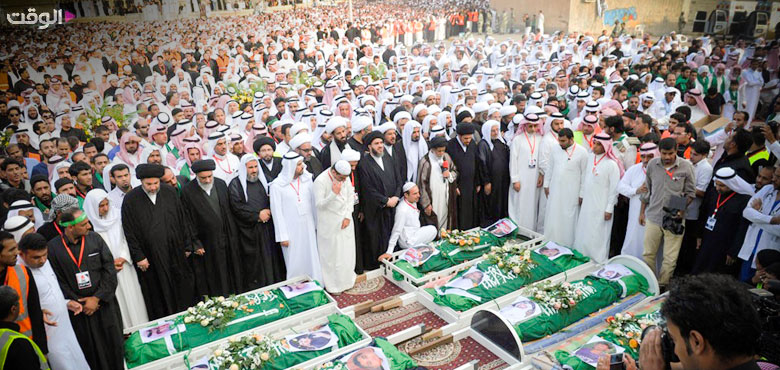Alwaght- The human rights record in Saudi Arabia has always been a point of internal and foreign criticism against the Saudi royal family. As the largest minority in the country, the Shiites of Saudi Arabia have always been subject of systemic discrimination and met heavy crackdowns from the rulers whenever they demanded rights or protested the discrimination against them.
Saudi ruling family, in addition to ignoring Shiite areas in its development plans and imposing economic discrimination on them, does not recognize Shiite religious beliefs and constantly attacks mosques and Husseiniyahs in predominantly-Shiite regions, though major oil-rich areas are located in the Shiite provinces. Silencing, executing, and sentencing to long jail terms in largely unfair courts with forced confessions have long turned into the only judicial way adopted by the government in response to the Shiite protests.
This situation even worsened recently as after execution of a 26-years-old boy for his participation in the 2011 anti-regime protests SaudiLeaks website warned that the west-backed kingdom plans to execute "four teenagers" from Qatif Shiite-majority city. But, many agree, the execution of the prisoners who protested peacefully 10 years ago is not accidental in the present situation and has to do with the messy conditions of the Crown Prince Mohammed bin Salman at home and abroad in his confrontation of the Axis of Resistance, a bloc headed by Iran and including Syria, Iraq, Lebanon, and Yemen. In the middle of this confusion, taking revenge on the Shiites is the easiest way for Prince Mohammed.
Government concerned about social circumstances
Part of the reason behind renewed execution of the Shiite citizens should be linked to the home developments. Reports suggest that Saudi Arabia has launched a new wave of arrests among rights activists. Saudi society has been evolving in recent years due to the increase of the young and educated class, and social and political demands have become part of their public demands. The change in the Saudi society went so far that a group of exiled Saudi dissidents formed the monarchy's first-ever political party in September 2020. Meanwhile, despite some show, reforms to scale down restrictions for women and offer social freedoms under bin Salman's reform program, the ruling family's resistance to granting political rights to activity of parties and NGOs unleashed a substantial wave of criticism from rights and women activists. According to media outlets, the government forces in response detained 12 rights activists in a new crackdown.
It is noteworthy that there are rumors suggesting that bin Salman is close to ascending the throne. So, he is doing his best to prepare the ground for his rule.
Understanding the international sensitivity to the execution of rights activists, the Saudi regime and the crown prince himself have launched a campaign of intimidation against the Shiites. The campaign has both the Wahhabi religious apparatus support and Western backing as the West keeps its eyes closed to anti Shiite crackdown policies of the Saudi rulers.
The influence of regional conditions
Yet another driving force behind the execution of the Shiite youths under the excuse of participation in the 2011 demonstrations is a desire to retaliate for Riyadh's defeats received from the Axis of Resistance in regional cases. One of the main reasons for Saudi Arabia's concerns about the developments in Yemen after the 2011 and 2014 revolutions and the military intervention in Yemen in 2015 was the fear that Saudi domestic developments would be affected by the Yemeni revolutionary developments. As mentioned, most of Saudi Arabia's oil resources are in the regions of Ghawar and Qatif in the Shiite-majority Eastern Province which is home to the country's, and even the world's, largest oil reserves.
These energy resources exist while the Shiites have the least benefit of them. The Saudis thought that a Shiite democracy in neighboring Yemen could influence the political and geopolitical status of the Arabian Peninsula and would be highly dangerous for Al Saudi monarchy. Needless to say, the Shiites of the kingdom are the key opponents of the Saudi criminal actions in Yemen and are happy with the current progress being made by the Yemeni forces against the Saudi forces, the loyalists to the resigned Yemeni President Abdrabbuh Mansour Hadi, and the southern separatists and are optimistic to see changes at home. Therefore, another important reason that the Saudi leaders execute the Shiite youths as a continuation to the pressures on the Shiite-majority regions is the defeats they have sustained in the confrontation of the Axis of Resistance.



























